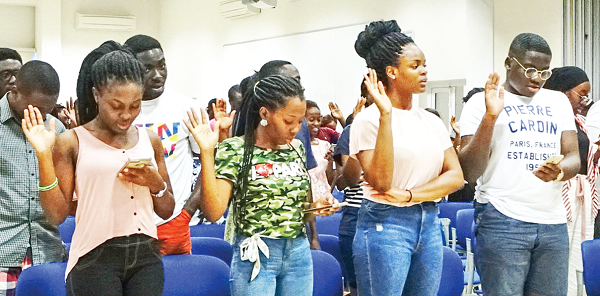
Making students honest about dishonesty: A message to other universities in Ghana
This article is the concluding part of the interview session with the President of Ashesi University, Dr Patrick Awuah. The first two parts of the interview session were published in the April 9 and April 23, 2022 editions of this paper respectively. This concluding part presents answers to two very important questions below.
ECK: What message do you have for authorities of other universities operating in Ghana regarding your crusade to produce morally upright, innovative and hardworking graduates to transform Africa?
Advertisement
PA: First and foremost, authorities of other universities in Ghana should note that it is important to recognise that integrity and performance go together. This is usually true at Ashesi University where students write quizzes and exams without invigilation. When the students decided to stop cheating, they channelled their energies into working harder to achieve their goals.
They realised that by working harder, their grades would genuinely improve, and so they are doing accordingly. This is one of the reasons why Ashesi graduates do so well in the work world. Thus, working hard to achieve their goals rather than cutting corners — their high integrity.
Engaging students
The second thing is that our approach to engaging students has been critically important. Yes, we have the rules and we enforce them, but the most important thing is that we engage students in conversations about integrity and ethics. We are not exacting or preaching to the students but getting them to rethink ethics and discuss them. Ashesi’s approach to teaching is strictly experiential. Engineering students design and build things, and business students design and build businesses on campus and we do the same with ethics. If you do not have a common goal, you do not have empathy, compassion and respect for your fellow citizens, when you get into the position of leadership you would cause harm.
As a result, I encourage authorities of other universities in Ghana to take the responsibility of educating good citizens very seriously because it is not a job for only families and the Church. The educational system is a very pervasive system in our society and forms the biggest part of government intervention in the public sector.
Ethics
It is important to also note that people who go through higher (tertiary) education end up occupying important (leadership) positions in society, so there is an even bigger responsibility to those of us running universities to pay attention to ethics, integrity and professional capability because most of what should be built in Africa is yet to be built.
The rate of population growth in Africa is going to be doubled in the next 30 years. Even if Africa has the perfect infrastructure and perfect institutions for our current population, it will be only half of what it may need in the next 30 years. Unfortunately, Africa does not have enough infrastructure to meet the current needs of its population, so there is a lot to be done. A lot of roads to construct, factories to build, government systems that need to be developed, processes that promote good product development and good services to be rendered. These things can only be achieved by people who are professionally competent, hardworking, creative and innovative.
That is why innovation is an important part of our focus here at Ashesi. We should be mindful of the fact that we in Africa are operating in a larger world where innovation is accelerating in other countries. We see dramatic technologies being developed; we see dramatic challenges, including climate change, cropping up. Therefore, Africa needs educated people with creative, innovative and hardworking abilities who can work well with one another, as well as work across cultures.
Vision
ECK: What is your vision?
PA: Resultantly, my vision for Ashesi University is to produce graduates who can champion the transformation of the African continent, and it is a vision that cannot be achieved by only one institution. It requires all educational institutions in Ghana to work in concert to achieve it.
Dr Patrick Awuah embarked on a crusade 20 years ago to produce ethical entrepreneurial leaders who would transform Africa. He was interviewed to solicit answers to pertinent questions concerning the rationale behind his crusade, challenges encountered during his journey so far and strategies he put in place to address them. This article presented his message to authorities of other educational institutions and what they should do to inculcate anti-corruption behaviour in their students for sustainable development.
Patrick’s answers to the interview questions can be summed up as: it is not all about I am the best, it is not about running a top-class university, it is not about the usual education, but it is about meeting the needs of the continent by producing ethical entrepreneurial graduates who will bring about unprecedented changes that will catapult the continent into a realm that will curb any form of exploitation of the developed world.




